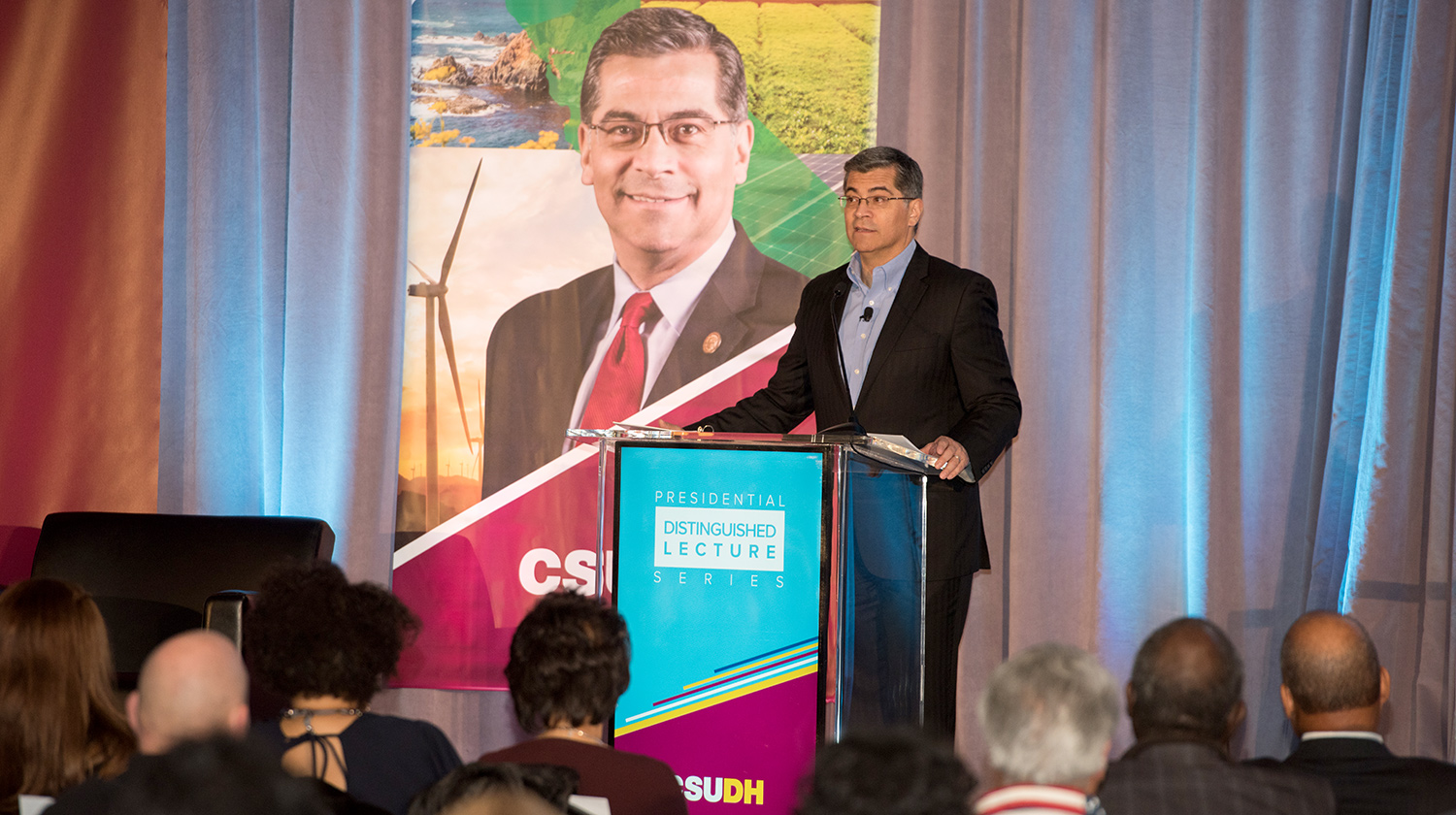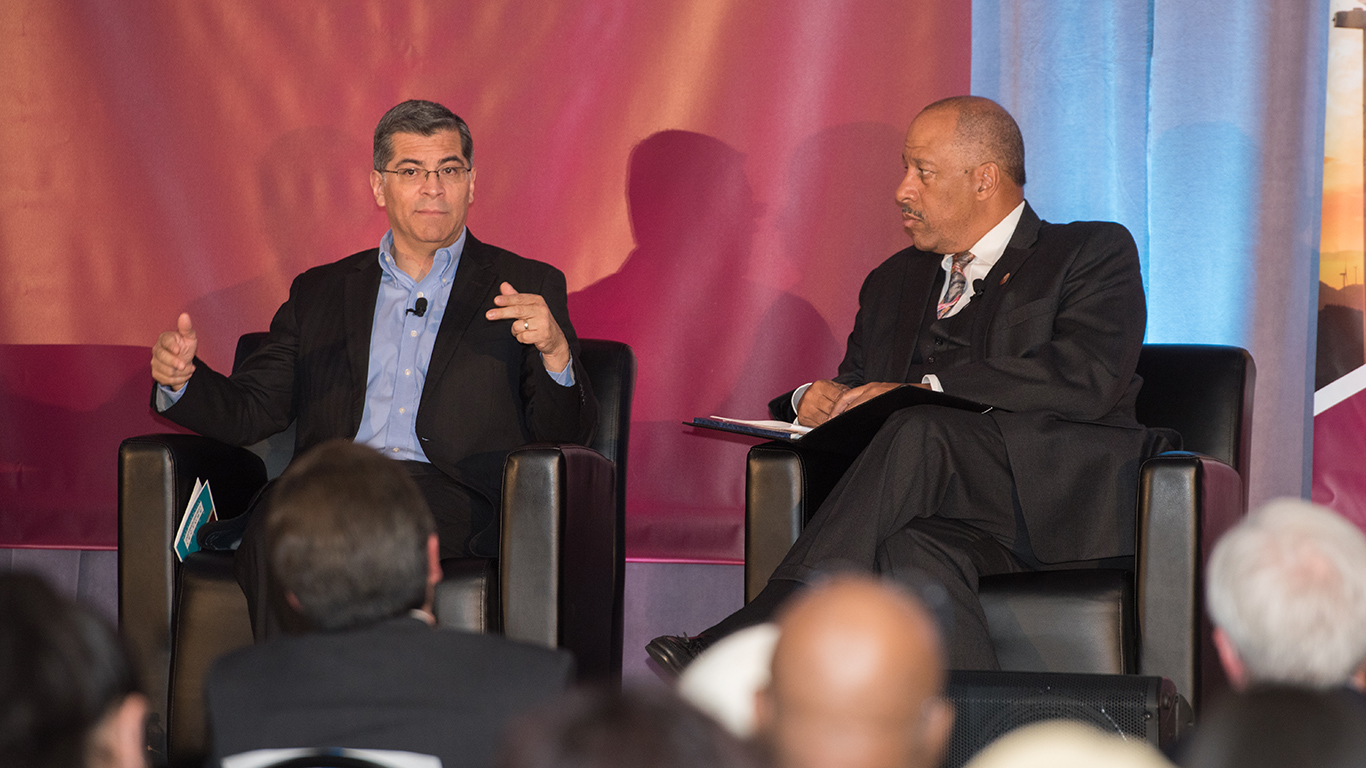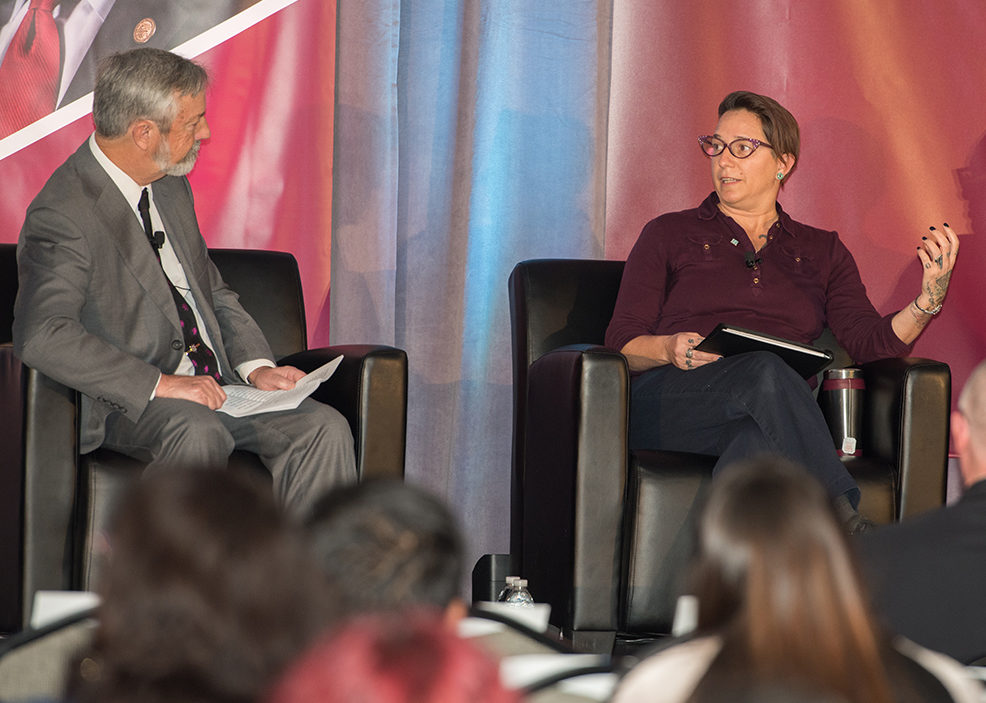
California Attorney General Xavier Becerra frequently used Mother Nature as a powerful metaphor for protecting the planet and securing the environmental protections critical to residents as the featured speaker during California State University, Dominguez Hills’ (CSUDH) Presidential Distinguished Lecture Series on Feb. 7.
CSUDH President Thomas A. Parham created the once-a-semester Presidential Distinguished Lecture Series as a way to engage the campus and surrounding community in thought-provoking discussions on some of society’s most pressing issues. Themed “Fighting for a Sustainable Future and Healthy Communities,” the spring lecture was one of several events that marked Parham’s inauguration as the university’s 11th president.

Becerra started his talk describing the natural beauty he saw as he came into the Los Angeles region: “What a beautiful sight to see the snow-capped mountains,” but his visual also served as a warning of Mother Nature’s wrath should humans not make significant changes in how they protect and coexist with the natural environment.
“The consequences are grave for us when we mess with Mother Nature,” said Becerra. “How long has it been since we’ve seen so much white on those mountains? How many days are there that you cannot see the mountains at all? How obvious is it becoming to see that we are making it tough for nature to give us everything it always has?”
Becerra added, “If we don’t do anything to change the path of this planet’s industrialization and constant use of carbon, we’re going to lose two-thirds of the snow in those mountains, which provides us with two-thirds of the water we need. It is time for us to work with Mother Nature, not against her.”
The consequences are grave for us when we mess with Mother Nature – Attorney General Xavier Becerra
Becerra, who previously served as a 12-term congressman in the U.S. House of Representatives, has made protecting the environment a top priority since taking office as the state attorney general in 2017. He has filed multiple lawsuits to uphold the rule of law when it comes to protecting the planet, and in 2018, established the Bureau of Environmental Justice at the California Department of Justice. Through oversight, investigation, and enforcement, the new bureau and its team of lawyers focus on protecting communities that endure a disproportionate share of environmental pollution and public health hazards.
In California, those communities tend to comprise primarily of low-income and minority families. The poor environment surrounding them is no fault of their own. In fact, Becerra argued that to save money, families in these communities tend to conserve more water and electricity and recycle or reuse everyday items than other Californians.

A panel discussion followed Becerra’s lecture and featured Gladys Limón, executive director of the California Environmental Justice Alliance; Timothy Watkins, president and CEO of the Watts Labor Community Action Committee; and Hawk McFadzen, CSUDH graduate student and CalFresh outreach coordinator. Moderated by John Thomlinson, CSUDH professor and chair of the Biology Department, the panel spoke for nearly an hour on the moral and legal responsibility to protect all communities from environmental hazards.
“They just never get credit for it. In fact, not only do they not get credit for conservation, the way they get paid back is by having all the environmentally degrading activities located in their neighborhoods,” he said. “They are also the ones who have the least resources to fight back against some of the most degrading environmental projects we’ve seen.”
As examples, Becerra addressed a few projects he fought to stop as a member of Congress, including the establishment of a waste incineration plant in the City of Commerce. He also played a significant role in the closure of the Exide Technologies battery recycling plant in 2015 in the City of Vernon, which contaminated several East Los Angeles and Boyle Heights neighborhoods with high amounts of lead.
“Do you know what lead does to kids? It ruins futures. Talk to the folks in Flint, Michigan, and they’ll tell you what it means to be frightened to drink water out of your own faucet,” said Becerra. “Yes, some of this we need,” Becerra continued, referring to recycling and waste facilities. “We have to dispose of our waste, and some of it we do incinerate, but why does it always seem to land on the east or south sides of Los Angeles? That’s what we’re fighting, and that’s why we established the Environmental Justice Bureau.”
However, Becerra says protecting underserved communities and the state’s fragile ecosystem is not a battle the bureau can fight alone.
“We need to earn the respect of Mother Nature, and Washington D.C. needs to earn the respect of California. I’m not going to wait for them to do the right thing. I’m going to do what we need to do to protect California and the people who are here,” he said. “We need to all work together, because at the end of the day, what really counts is whether or not those mountains are white on top and can you see them. If you can see them, then you are in harmony with Mother Nature, and we are doing right by the world. If not, then you better enlist with me, because we’ve got a fight to take on, and we’re going to make something happen in this place.”
To conclude, Becerra turned to the CSUDH students in the audience. “Those of you who are preparing yourselves to be future leaders, I know you’re involved in a number of activities, but Mother Nature would love you to be involved in this one as well. Fight for your rights, and fight for the rights of Mother Nature.”